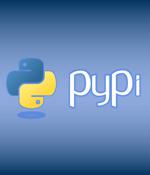Security News

A critical vulnerability in Samba, a widely used open source implementation of the Server Message Block networking protocol, could allow attackers to execute arbitrary code as root on affected Samba installations. Several updated versions of Samba have been released on Monday, fixing CVE-2021-44142 and two other flaws, but since the software is included in most Linux and Unix-like operating systems, users of those are advised to keep an eye out for specific updates by those developer teams.

Two security vulnerabilities that impact the Control Web Panel software can be chained by unauthenticated attackers to gain remote code execution as root on vulnerable Linux servers. CWP, previously known as CentOS Web Panel, is a free Linux control panel for managing dedicated web hosting servers and virtual private servers.

Apache has released another Log4j version, 2.17.1 fixing a newly discovered remote code execution vulnerability in 2.17.0, tracked as CVE-2021-44832. Prior to today, 2.17.0 was the most recent version of Log4j and deemed the safest release to upgrade to, but that advice has now evolved.

Blackmagic Software has recently addressed two security vulnerabilities in the highly popular DaVinci Resolve software that would allow attackers to gain code execution on unpatched systems. As its developer Blackmagic claims, DaVinci Resolve is "Hollywood's most popular solution for editing" for Mac, Windows, and Linux.

An unauthenticated remote code execution vulnerability in Apache's Log4j Java-based logging tool is being actively exploited, researchers have warned after it was used to execute code on Minecraft servers. The Apache Foundation published a patch for the critical-rated vuln earlier today.

Tricking users into visiting a malicious webpage could allow malicious people to compromise 150 models of HP multi-function printers, according to F-Secure researchers. The Finland-headquartered infosec firm said it had found "Exploitable" flaws in the HP printers that allowed attackers to "Seize control of vulnerable devices, steal information, and further infiltrate networks in pursuit of other objectives such as stealing or changing other data" - and, inevitably, "Spreading ransomware."

A high-severity security vulnerability in CloudLinux's Imunify360 cybersecurity platform could lead to arbitrary code execution and web-server takeover, according to researchers. Imunify360 is a security platform for Linux-based web servers that allows users to configure various settings for real-time website protection and web-server security.

A critical Discourse remote code execution vulnerability tracked as CVE-2021-41163 was fixed via an urgent update by the developer on Friday. Discourse is an open-source forum, long-form chat, and mailing list management platform widely deployed on the web, offering excellent usability and integration potential while focusing heavily on social features.

Cisco SD-WAN implementations are vulnerable to a high-severity privilege-escalation vulnerability in the IOS IE operating system that could allow arbitrary code execution.The bug is an OS command-injection issue, which enables attackers to execute unexpected, dangerous commands directly on the operating system that normally wouldn't be accessible.

The PyPI repository has removed a Python package called 'mitmproxy2' that was an identical copy of the official "Mitmproxy" library, but with an "Artificially introduced" code execution vulnerability. Yesterday, Maximilian Hils, who is one of the developers behind the 'mitmproxy' Python library drew everyone's attention towards a counterfeit 'mitmproxy2' package uploaded to PyPI. 'mitmproxy2' is essentially "The same as regular mitmproxy but with an artificial RCE vulnerability included."